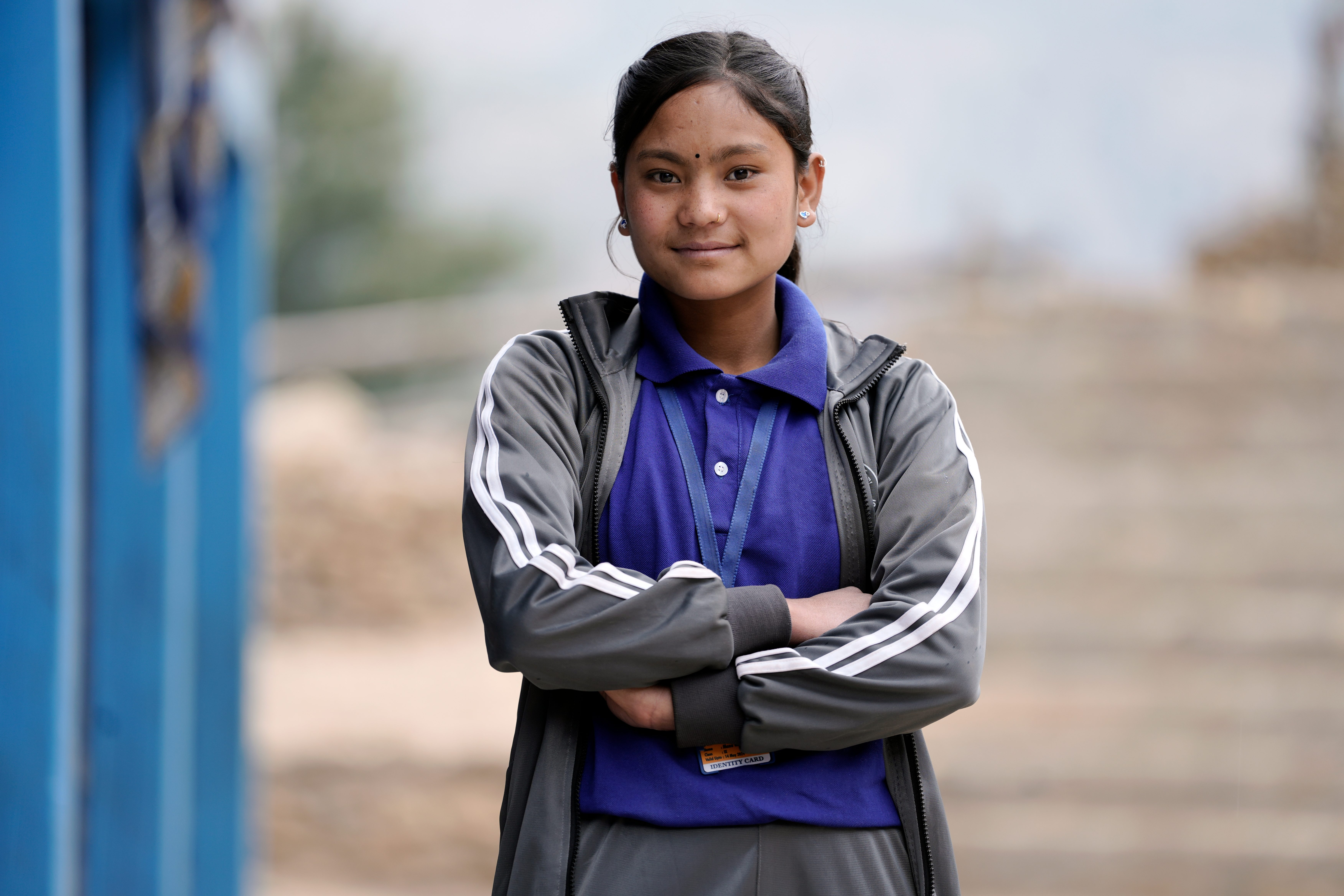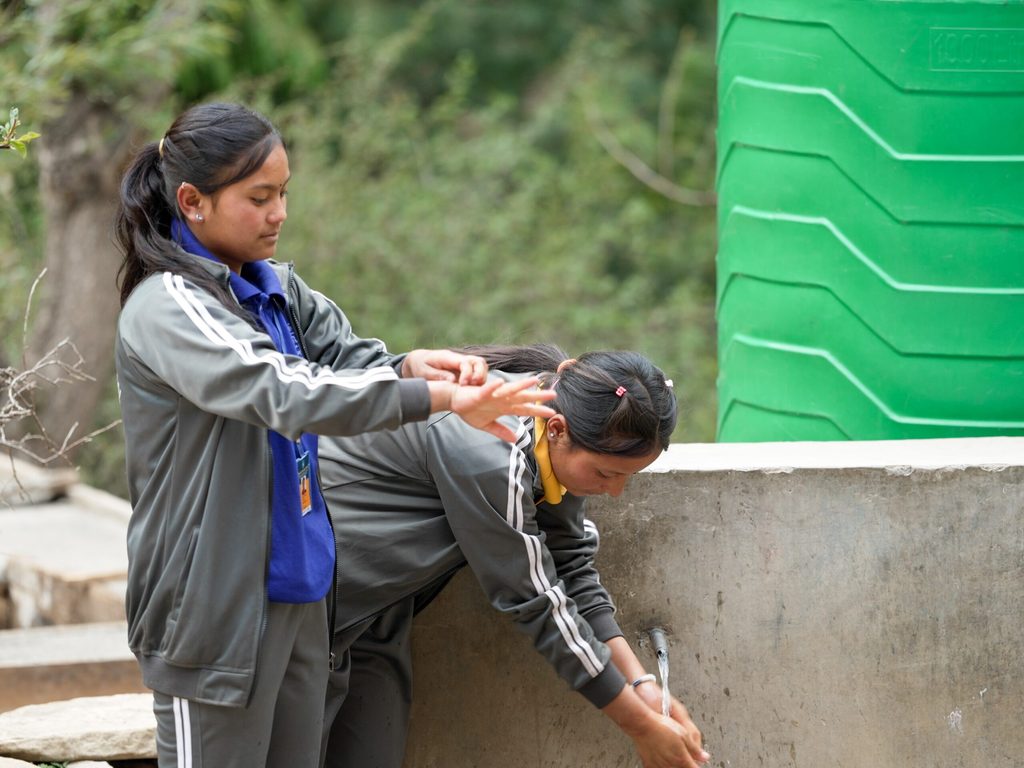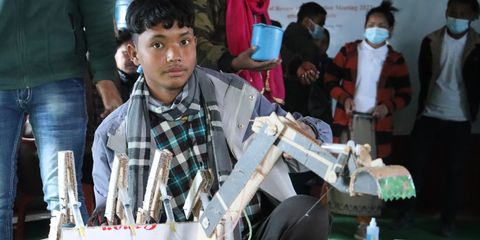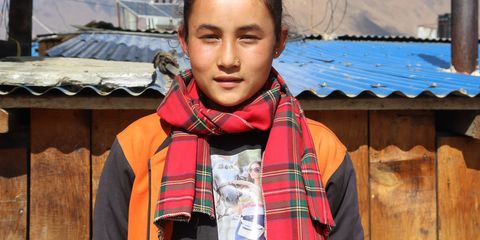Manu’s vision to end gender discrimination
Eighteen-year-old Manu, a student from Dolpa district in Nepal, says she wants to be a role model for social change and contribute to the betterment of her community.

Growing up in a society where women and girls face significant challenges, Manu is driven by a strong desire to continue her education and improve conditions for women. “Our society needs to challenge the outdated traditions that hinder women’s progress,” says Manu. “By empowering women and ensuring equal opportunities, we pave the way for a more progressive and just society. It’s time to move beyond old norms and embrace change that benefits everyone.”
Manu is committed to raising social awareness of women’s rights and gender equality. “In our society, women often face inequalities compared to men. I want to work towards ending gender discrimination and improving conditions for women.”
“In our society, women often face inequalities compared to men. I want to work towards ending gender discrimination and improving conditions for women.”
Manu
Deeply troubled by the traditional division of labour in her home, where her mother is confined to the home while her father works outside, Manu says this division limits women and influences societal attitudes towards gender roles.
“The roles assigned to women in the home influence how children perceive gender roles in the future. To combat this, we need to start by raising social awareness and challenging these discriminatory practices.”
Changes during adolescence
As a young woman, Manu is acutely aware of the physical and psychological barriers that limit women in her community. At home, she and other female family members face restrictions during their menstrual periods that confine them to a specific room in the house. The practice of isolating menstruating women and girls, known as ‘chhaupadi’, reflects deep-seated cultural beliefs and taboos that perpetuate discrimination against menstruation.
“The conditions during my period at home are far from ideal,” Manu explains. “We are confined to a room without proper sanitation, which makes an already difficult time even harder. This isolation and lack of hygiene contributes to the stigma and discomfort that menstruating girls and women face.”
Menstrual discrimination in Manu’s community is not only a physical challenge, but also an emotional one. The stigma surrounding menstruation leads to feelings of shame and exclusion, further perpetuating the belief that menstruation is something to be hidden and avoided. This deep-rooted stigma affects the mental well-being of young girls and women, undermining their confidence and sense of self-worth.
“The stigma associated with menstruation makes it feel like a source of shame rather than a natural part of life. This negative perception affects how we see ourselves and how we are treated by others,” Manu reflects.
“The stigma associated with menstruation makes it feel like a source of shame rather than a natural part of life. This negative perception affects how we see ourselves and how we are treated by others.”
Manu
Barriers to accessing health and hygiene facilities

The lack of adequate facilities at home and in some schools creates significant barriers for girls to maintain their menstrual health. Inadequate access to sanitary products, clean water and safe disposal options further complicates the situation. These barriers not only affect physical health, but also limit girls’ and young women’s educational and social opportunities.
“Without adequate access to sanitary products and clean facilities, managing menstruation becomes a major challenge. This lack of resources can prevent girls from attending school and participating in daily activities,” says Manu.
Manu’s experiences during adolescence, particularly her menstrual cycle, made her more aware of personal hygiene. Initially indifferent to cleanliness, Manu became more mindful after her first period at school, following the hygiene practices taught by her teachers. Observing the practices of the older women in her village also deepened her understanding.
“The school’s approach to menstrual hygiene management has been very supportive,” Manu says. “The availability of soap, water, sanitary pads and disposal facilities has made a huge difference to us teenage girls.”
Hands-on education at school
Manu’s education goes beyond textbooks, she actively participates in meetings and training sessions that focus on gender equality and women’s rights. This has given her the knowledge and confidence to lead campaigns for gender equality.
“I am lucky enough to represent my school at various events where I can interact directly with local government officials,” says Manu. “These experiences have helped me understand how to advocate for girl-friendly and women-centred initiatives that address issues such as household chores and menstruation.”
Dialogue with local government
Manu’s active participation extends to engaging with local government officials. She uses these platforms to advocate for policies and initiatives that are inclusive and supportive of girls and women. Her goal is to ensure that local government initiatives are designed with a focus on gender equality, with the aim of eliminating discrimination both at home and in public spaces.
“Conversations with local government have been instrumental in pushing for changes that benefit girls and women,” Manu explains. “It’s important to have policies that recognise and address the unique challenges women face, including those related to household responsibilities and menstrual hygiene.”
Building confidence through Steam Ahead
Manu’s confidence and skills as an advocate are supported by her involvement in Plan International’s Steam Ahead initiative at her school. This project has provided her with the practical training and resources she needs to effectively lead campaigns and engage with community leaders.
“The Steam Ahead project has been a cornerstone in building my confidence and leadership skills,” says Manu. “It has given me the tools and knowledge to advocate for gender equality and represent my school with conviction.”
“It has given me the tools and knowledge to advocate for gender equality and represent my school with conviction.”
Manu
Through the Steam Ahead project, Manu has gained access to educational resources and training that empower her to take an active role in social change. Her participation in hands-on training has not only deepened her understanding of gender issues but also strengthened her ability to bring about meaningful change in her community.
A vision for a more inclusive future
Manu’s commitment to ending gender inequality reflects her broader vision for a more inclusive and just society. By using the education and opportunities provided by her school and the Steam Ahead project, Manu is leading the charge against discrimination and advocating for a future where all people, regardless of gender, can thrive.


